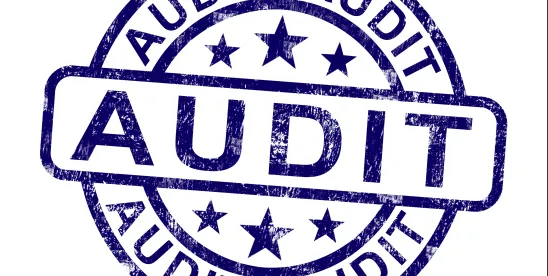Compliance obligations affect all stages of the employment cycle, from before an employee’s first day up to beyond their last. In light of the upcoming change in federal government leadership, employers should consider reviewing their compliance programs for employer-sponsored nonimmigrant and immigrant processes.
I-9 Audits
Form I-9, Employment Eligibility Verification, is used to verify the identity and employment authorization of individuals hired by U.S. companies. Among other requirements, employers must maintain I-9 forms for all current employees for inspection. Document retention requirements for the I-9 form do not end when the employment relationship does. Employers are required to retain I-9 records for former employees for a period of at least three years from the date of hire or for one year after the employee is no longer employed.
For former employees, retention of the I-9 is required for a period of at least three years from the date of hire or for one year after the employee is no longer employed with the company. These documents must be available within three days of receiving a Department of Homeland Security inspection notice. Failure to comply with Employment Eligibility Verification can subject employers to fines, which can be as high as $5,579 per violation per day for a first time offense.
Consider conducting an internal audit of your current I-9 documentation retention practices to ensure the company is ready in the event of a Department of Homeland Security inspection notice.
H-1B: Maintaining a Public Access File
All employers sponsoring H-1B employees must create and maintain what the industry refers to as a Public Access File (PAF) for each H-1B employee. In addition to a requirement to present the documents to anyone who requests to view it at any time, the regulations are clear that a PAF should be established no later than the date on which the employer submits the Labor Condition Application (LCA) to the U.S. Department of Labor (DOL). Failure to put together a PAF in a timely manner may lead to compliance issues and penalties.
In addition, an employer must maintain the PAF for a period of one year beyond the last date on an H-1B worker was employed under the LCA or for one year from the date the LCA expired or was withdrawn.
The DOL maintains discretion to randomly audit public access file records. Consider conducting an audit of any H-1B public access files to ensure your company is maintaining the correct documents for the required amount of time.
Permanent Residence (Green Card) Process and Department of Labor Audits
The DOL maintains the discretion to randomly audit ETA 9089, or PERM applications, filed by employers on behalf of employees they wish to sponsor permanently. Further, employers must maintain their PERM audit files for five years following the date form ETA 9089 was filed with the DOL.
When an employer is randomly selected in an audit, they will typically be required to provide evidence of a properly completed labor market test. Failure by employers to maintain the correct audit file materials for the required amount of time may result in compliance issues.
Worksite Visits
The USCIS implemented the Administrative Site Visit and Verification Program in July 2009 as an additional way to verify information in certain visa petitions. Under this program, immigration officers in the Fraud Detection and National Security Directorate (FDNS) make unannounced site visits to collect information as part of a compliance review.
Every employer that signs the Form I-129 – the USCIS form used for nonimmigrant visa petitions such as the H-1B and the L-1A and L-1B – agrees that “any supporting evidence submitted may be verified by USCIS through any means determined appropriate by USCIS, including but not limited to, on-site compliance reviews.”
Although FDNS site visits are voluntary, it’s best that employers cooperate when confronted with government agents seeking to enter the worksite for such a visit. Employers are also advised to contact their immigration attorney immediately if an FDNS investigation takes place. Generally, most site visits are unannounced and FDNS does not reschedule a visit to accommodate counsel; however, counsel is permitted to be present if logistically possible and may be permitted to participate via telephone.
As of FY2019, FDNS is authorized to conduct compliance-review site visits on petitions for:
- Special immigrant religious workers petitions (before and after adjudication)
- H-1B nonimmigrant temporary visas (after adjudication)
- L-1 nonimmigrant intracompany transferee executive or manager visas (after adjudication)
- EB-5 immigrant investor program visas (before adjudication)
Be Prepared for Changes
The new administration has made it clear that immigration enforcement is a top priority. While much news coverage has been focused on border security, employer compliance with immigration laws will likely also be a focus of the enforcement strategy. As the year is wrapping up, and before the new administration sets its agenda, now is the right time to review your company’s current compliance practices.





 />i
/>i
